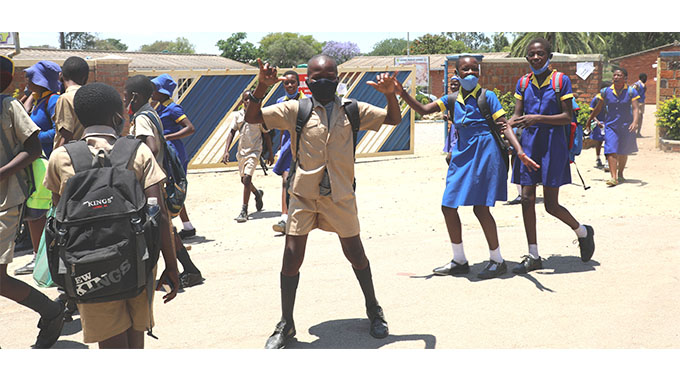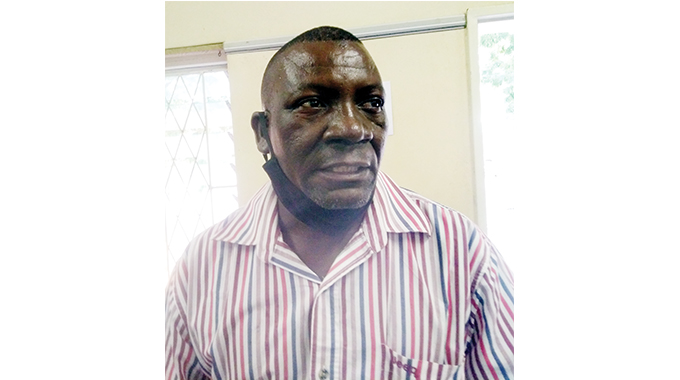COMMENT: Education 5.0 is the way to go

It took us too long to realise that a high-sounding educational qualification is worthless if its holder cannot utilise it to produce anything of value.
Hundreds of thousands of such people graduated from local colleges and universities, proud that they now had an education while flaunting the caps and gowns. With only the academic gear and the certificate in hand, they set out looking for jobs, lucky ones getting them while many others weren’t so lucky. Industry complained over the years that the graduates had no clue of the practical world, just big in theory, thus many of them were unemployable.
The Second Republic, on assuming office in late 2017, realised that there was something wrong with that training model and took a decision to correct the wrong.
The Government introduced a model that enables students and institutions of higher and tertiary education to, yes, flaunt the caps and gowns, but also tangibles. Just three years after that new thrust was introduced, results are there for all to see.
We now have a university that is producing semen that is being used for artificial insemination, helping improve the national cattle herd. We now have universities that are producing hand sanitisers and facemasks that are helping in national efforts to contain Covid-19.
The delineation of agro-ecological regions in the country was done between 1945 and 1960, determining the various agricultural regions in the country and farming practices most suitable for those areas. That delineation allowed farmers, the Government and development partners to plan and execute farming activities. However, that demarcation was based on the climatic situation of that time. Fifty years on, climate change has occurred, meaning that crops that one could grow successfully in an area in 1965 may not be done with equal success in the same area now. This means that that zoning has become outdated. Thanks to the new, practical education in the country, the natural agro-ecological regions have been redrawn and will, going forward, begin to influence Government policy and farming activities on the ground.
We quote Higher and Tertiary Education, Innovation, Science and Technology Development Minister Professor Amon Murwira elsewhere today saying universities and colleges are now producing goods and services instead of producing half-baked graduates who knew nothing about the job market.
Addressing college and university principals and vice chancellors at a strategic planning workshop underway in Bulawayo yesterday, Prof Murwira said the coming in of the new dispensation has transformed how universities and colleges conduct business under the Education 5.0.
“Results of our new focus on education, innovation, science and technology focus are beginning to show. We have now formed the Zimbabwe National Geospatial and Space Agency, whose results include the new Zimbabwe Agro-ecological Zones map and will aid agricultural planning. We have also revamped and improved the Management Training Bureau (MTB) to the status of high level training institute,” he said, adding that almost all local universities have built innovation hubs where students and their lecturers are transforming theoretical aspects into goods and services that are being sold. Industrial parks, he said, are under construction.
“We have built and completed innovation hubs at University of Zimbabwe, National University of Science and Technology (NUST), Midlands State University (MSU), Chinhoyi University of Technology (CUT) and Harare Institute of Technology (HIT). We are in the process of building and completing more innovation hubs at Zimbabwe National Defence University (ZNDU), Bindura University of Science and Technology (BUSE), Great Zimbabwe University (GZU). We are building industrial parks at UZ, MSU and CUT. At CUT we have now the capacity for producing and packaging bull semen for artificial insemination with potential annual revenue of US$140 million. We also have started a dairy project in May 2020 at CUT beginning with 65 dairy cows and 50 calves,” said the Minister.
Yes, we, as a country, took a long time to realise that education is worthwhile only if it is productive; if it enables one who has it to produce goods are services of commercial value but, we are glad that it is better late than never.
It is still early days, we must say, but we have every reason to be hopeful that local colleges and universities will in the next few years, build from what has been achieved over the past three years to become major players in local industry and commerce by producing, not only work-ready graduates, but also products and services that can transform lives and are tradeable.
Colleges and universities are able, and will soon be able to generate much money through their innovations and commercialising those innovations.








Comments